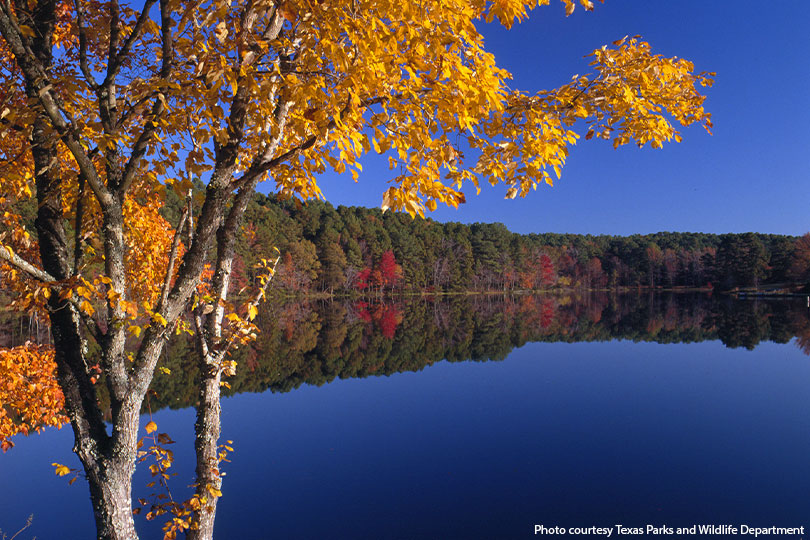By Jessica Domel
Multimedia Reporter
As the Texas State Parks system celebrates its centennial and awaits the opening of the newest state park later this year, the system is also mourning the loss of Fairfield Lake State Park northeast of Waco.
The department acquired the state park in 1971 through a lease from Texas Utilities, which is now called Vistra Corp. The corporation operated a coal power plant at the location until the plant was shuttered in 2018.
“In September of 2018, Vistra notified the department that it intended to sell the entire 5,000-plus acre holding, including the park,” Dr. David Yoskowitz, executive director of the Texas Parks and Wildlife Department (TPWD), told the Texas Senate Committee on Water, Agriculture and Rural Affairs. “In March 2020, the department sought an agreement with Vistra to purchase the state park site of 1,800 acres, but Vistra would not consider a sale of just the park land. The department was notified on Feb. 13 of this year by Vistra that the lease for the park was terminated due to the impending sale of the property.”
Sen. Charles Perry, who chairs the committee, said at the hearing that in 2018, the state park system didn’t have the funding possible to purchase the state park.
The funding was dedicated in 2019, but, according to Yoskowitz, Vistra would not sell the state the park land alone.
Visitors lost access to the park, which is located in Fairfield in Freestone County, Feb. 28.
“The department has $70 million worth of infrastructure that it will need to start to demobilized as best as it can, and staff members need to be relocated,” Yoskowitz said.
Arch “Beaver” Aplin III, chairman of the Texas Parks and Wildlife Commission, said the loss of the state park is a significant step backward in efforts to expand outdoor recreational opportunities for Texans.
“This loss is especially unfathomable at a time when we are celebrating 100 years of state parks, yet absent any cooperation or interest in working with us from the developer, we have no other options,” Aplin said. “Rest assured commissioners remain committed to working with Todd Interests (the new owners of the property) to maintain this important public asset and grow outdoor recreation in Texas.”
According to the Texas Tribune, the state invested $72 million in improvements at Fairfield Lake State Park over 30 years.
The land sold for $110.5 million.
The 5,000-acre property will be developed into a gated community with multi-million dollar homes and a private golf course, according to the Dallas Morning News.
“This is an unprecedented loss of a state treasure for Texans,” Yoskowitz said. “The demand for outdoor recreation exceeds supply in Texas, so losing even one state park is a set-back for all of us who enjoy publicly accessible lands. We have worked diligently to find a solution that would allow TPWD to purchase part, or all of the property, and it is unfortunate that an agreement could not be reached at this time with Vistra or the buyer.”
Perry told the committee in late February the state is in negotiations with the buyer.
“We’re in it, we’re working through it, and maybe we can keep that park for Texas,” Perry said.
Fairfield Lake State Park opened to the public in 1976 and was named after the 2,400 acre Fairfield Lake.
The park saw an average of 80,000 visitors a year.
“It provided activities such as horseback riding, family reunions, paddling, hiking and camping,” Yoskowitz said. “Fishing was also a huge activity within the state park and the lake. The third most number of ShareLunker bass were pulled out of the small lake.”
ShareLunker bass are bass weighing at least eight pounds or more. During the first three months of the year, largemouth bass weighing 13 pounds or more may be loaned to the Toyota ShareLunker program for selective breeding. The fingerlings of those fish are then returned to lakes to create bigger, better bass fishing in the state.
Since the announcement of Fairfield’s closure, members of the Texas Legislature have filed bills for consideration that could prevent something similar from happening to other leased state parks in the future.
The state owns most state parks, but continues to lease the land 14 other state parks sit on.

